第7章 Life In Philadelphia (2)
Everybody's attention in those days was centered on the water instead of inland on railroads as it is today.Commerce was the source of wealth of the town as agriculture was the wealth of the interior of the province.Every one lived close to the river and had an interest in the rise and fall of the tide.The little town extended for a mile along the water but scarcely half a mile back from it.All communication with other places, all news from the world of Europe came from the ships, whose captains brought the letters and the few newspapers which reached the colonists.An important ship on her arrival often fired a gun and dropped anchor with some ceremony.Immediately the shore boats swarmed to her side; the captain was besieged for news and usually brought the letters ashore to be distributed at the coffeehouse.This institution took the place of the modern stock exchange, clearing house, newspaper, university, club, and theater all under one roof, with plenty to eat and drink besides.Within its rooms vessels and cargoes were sold; before its door negro slaves were auctioned off; and around it as a common center were brought together all sorts of business, valuable information, gossip, and scandal.It must have been a brilliant scene in the evening, with the candles lighting embroidered red and yellow waistcoats, blue and scarlet Coats, green and black velvet, with the rich drab and mouse color of the prosperous Quakers contrasting with the uniforms of British officers come to fight the French and Indian wars.Sound, as well as color, had its place in this busy and happy colonial life.Christ Church, a brick building which still stands the perfection of colonial architecture had been established by the Church of England people defiantly in the midst of heretical Quakerdom.It soon possessed a chime of bells sent out from England.Captain Budden, who brought them in his ship Myrtilla, would charge no freight for so charitable a deed, and in consequence of his generosity every time he and his ship appeared in the harbor the bells were rung in his honor.They were rung on market days to please the farmers who came into town with their wagons loaded with poultry and vegetables.They were rung muffled in times of public disaster and were kept busy in that way in the French and Indian wars.They were also rung muffled for Franklin when it was learned that while in London he had favored the Stamp Act--a means of expressing popular opinion which the newspapers subsequently put out of date.
The severe Quaker code of conduct and peaceful contemplation contains no prohibition against good eating and drinking.Quakers have been known to have the gout.The opportunities in Philadelphia to enjoy the pleasures of the table were soon unlimited.Farm, garden, and dairy products, vegetables, poultry, beef, and mutton were soon produced in immense quantity and variety and of excellent quality.John Adams, coming from the "plain living and high thinking" of Boston to attend the first meeting of the Continental Congress in Philadelphia, was invited to dine with Stephen Collins, a typical Quaker, and was amazed at the feast set before him.From that time his diary records one after another of these "sinful feasts," as he calls them.But the sin at which he thus looks askance never seems to have withheld him from a generous indulgence."Drank Madeira at a great rate,"he says on one occasion, "and took no harm from it." Madeira obtained in the trade with Spain was the popular drink even at the taverns.Various forms of punch and rum were common, but the modern light wines and champagne were not then in vogue.
Food in great quantity and variety seems to have been placed on the table at the same time, with little regard to formal courses.
Beef, poultry, and mutton would all be served at one dinner.